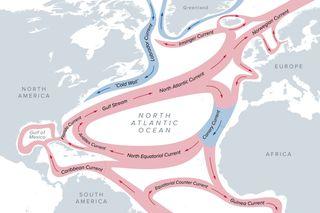In the marshlands where resilience meets controversy,Louisiana’s ambitious coastal restoration blueprint has dissolved into a mirage of unmet promises. What was once heralded as a transformative $3 billion environmental reclamation effort—funded by the lingering financial shadows of the Deepwater Horizon oil disaster—now stands as a stark testament to bureaucratic complexity and environmental uncertainty. As waves continue to erode the state’s delicate coastline, this abruptly cancelled project leaves behind more questions than solutions, casting a complex narrative of environmental planning, economic constraints, and the perpetual challenge of healing ecological wounds. In a surprising turn of events,Louisiana’s ambitious coastal restoration initiative has ground to a halt,leaving environmental advocates and local communities stunned by the abrupt cancellation. The $3 billion project, originally funded through settlements from the Deepwater Horizon oil disaster, now sits in limbo, raising critical questions about environmental preservation and state resource management.
Intricate plans that promised to rebuild eroding coastlines and protect vulnerable communities have been suddenly shelved, creating a complex web of disappointment and uncertainty. State officials cited budgetary constraints and shifting priorities as primary reasons for the unexpected decision, leaving environmental experts scrambling to understand the broader implications.
The Gulf Coast region, already facing notable challenges from rising sea levels and environmental degradation, will now confront additional obstacles in its quest for ecological resilience. Coastal erosion continues to consume Louisiana’s landscape at an alarming rate, with approximately one football field of land disappearing every 100 minutes.
Environmental scientists argue that the cancellation represents a significant setback in long-term conservation efforts. The carefully developed restoration strategy was designed to mitigate land loss, protect critical habitats, and provide natural barriers against hurricane impacts. Without these interventions, coastal communities remain increasingly vulnerable to environmental and economic disruptions.
Local stakeholders have expressed deep frustration, highlighting the missed opportunity to leverage oil spill settlement funds for meaningful environmental restoration.The project would have not only addressed ecological concerns but also created ample employment opportunities in regions still recovering from industrial environmental damage.
Complex geological dynamics in Louisiana’s coastal regions demand continuous strategic interventions. The Mississippi River Delta’s intricate ecosystem requires sustained investment and comprehensive management approaches. The project’s cancellation potentially undermines years of scientific research and collaborative planning.Political analysts suggest the decision reflects broader challenges in balancing environmental preservation with economic considerations. The state’s delicate relationship with energy industries and budget limitations likely influenced this controversial choice.
Community leaders and environmental organizations are now exploring alternative funding mechanisms and advocacy strategies to revive similar restoration initiatives. The cancellation has sparked renewed discussions about sustainable coastal management and the critical importance of proactive environmental protection.
As Louisiana confronts these challenging circumstances, the broader Gulf Coast region watches closely, understanding that the implications extend far beyond immediate geographical boundaries. The unresolved questions surrounding coastal restoration continue to challenge policymakers, scientists, and local communities alike.
The future of Louisiana’s coastline remains uncertain, with potential long-term consequences that could reshape the region’s ecological and economic landscape for generations to come.










